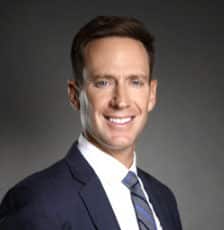Everywhere in the creation, manufacturing, and distribution of a drug lies the potential for something to go wrong. While safeguards are in place to help minimize instances of slip-ups, no plan is without a margin of error. What becomes a margin of error, a statistic to be collected for companies, agencies, and health departments on paper, loses the stories from the victims who represent those numbers.
Why Some Medications Are Making People Sicker
Thalidomide, commonly known as the “tragedy of thalidomide”, is one such example. Advertised as a wonder drug in the early 60s for pregnancy-induced morning sickness, it caused thousands of miscarriages and various counts of deformations before it was recalled internationally. Less than 3,000 children who were impacted by the medication are living today. Almost all are living with various conditions brought on by the drug’s impact during their mothers’ pregnancies.
From September 23rd of this year to August 30th of 2017, there have been over 300 drug recalls. That’s an average of almost 9 recalls per month. A median recall time for a drug (from when it is first approved by the FDA to the moment a recall is issued) is 5 years. During that time, numerous prescriptions can be written, sold, and administered before any statement is released to the public. Innumerable damage can be done to unsuspecting consumers during that time frame. With doctors and pharmacists as well having to scramble to find safe alternatives, if any, for their patients, the struggles become multiplied when shifts or going ‘cold turkey’ impact the people who need medication to continue their day to day living.
Additionally, not all recalls are mass announced. Fortunately, recalls that are issued by the FDA on a monthly basis are updated weekly on their website. Within the FDA there are 3 classes of recalls;
- Class III recalls aren’t usually considered especially dangerous by the FDA, mostly because this recall class involves mislabelling errors or manufacturing law violations pertaining to sanitation or mild substance mix-ups;
- Class II recalls carry the risk of hospitalization and medical conditions that can be reversed with proper diagnosis and care;
- Class I recalls carry the highest risks, with reasonable evidence of substantial health concerns that can be permanent.
Recalls are not the same as market withdrawals. These occur whenever there is tampering done with a product not resulting from manufacturing or distribution.
While there is protocol in place to help in the assessment and containment of safety breaches like this, it is an enormous task for inspectors when there are not just state-side manufacturers but foreign ones as well. In fact, reports from 2019 estimate over 85% of America’s drugs have ingredients coming from overseas, with China and India as front runners in the trades. Out of every five manufacturing facilities, the USFDA was only able to investigate one. Reasons for this range from the limited resources of the USFDA, the language barriers between inspectors and facility staff, and time constraints imposed by other coinciding obligations.
While this may cause concern, the pragmatic businessperson undoubtedly notes the low costs of overseas production, labor, and less stringent government regulations. Thankfully, there has been progressive legislation when the Food and Drug Administration Safety and Innovation Act (FDSAI) made it to where manufacturers’ products can be refused entry into American markets if they refuse, delay or otherwise interfere in an inspection of any process of the factory.
There have only been three cases where the FDA has had to evoke its mandatory recall authority, but only one of them resulting from a company refusing to follow voluntary recalls orders. This was the case of Nevada based company Triangle Pharmanaturals when it was discovered its kratom products had traces of salmonella. Six cases were reported, two of them from an Oregon based retailer and processed by the Oregon Public Health Division. The voluntary recall order was issued in March of 2018, but it wasn’t until May of 2018 that the FDA forced the stop. Numerous requests for record access were denied, and communications with employees regarding the FDA’s findings had gone unnoticed. While salmonella is typically a non-fatal disease that lasts for almost a week, kratom-based products during that time caused hospitalization for a number of people.
Profits and cost-cutting, no matter how good for the business, often leave little say for the consumers and their needs. However, companies and distributors have high standards that need to be met to avoid harm to the public, much the same way a doctor’s Hippocratic oath enforces higher standards of ethics and responsibility towards their patients. Without these standards, it becomes a case of the willfully blind leading the unknowingly blind.





